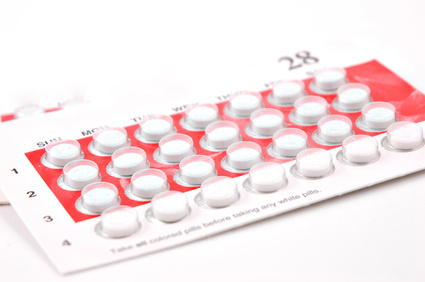Thanks to President Obama’s Affordable Care Act and the recent changes in preventable health services, birth control is about to become much more accessible to women of all ages all over the country. In light of these changes it seems like a good time to reveal some of the common myths and misconceptions about birth control. With all the information available on the internet these days and the increased popularity of sites like yahoo answers there is a wealth of misinformation out there about effective forms of birth control here are 6 of the most common birth control myths debunked.
Myth: The Pill Makes You Gain Weight
This is one of the major concerns you hear from women who are considering using birth control. The fact is most women do not gain weight on a regular birth control pill, If any weight is gained it is usually just water retention and under two pounds. Everyone reacts to birth control differently and occasionally a type will lead to an increase in appetite which in turn can lead to over eating and weight gain. If you feel that your appetite is being affected switching brands of birth control will usually remedy the situation.
Myth: The Pill Can Increase Your Risk of Cancer
The pill is not a cancer-causing agent and in fact can greatly reduce your risk of ovarian and uterine cancer. That being said there is a small link between breast cancer and the pill. While women on the pill may be at a slightly higher risk of developing breast cancer the risk only exists while continuing to take the pill, once you stop taking birth control the additional risk disappears.
Myth: You Need to Take an Annual Break from Birth Control
It’s a common misconception that you should take an annual break from birth control but that’s all it is, a misconception. There is no medical need for stopping birth control until you are ready to try and conceive.
Myth: Missing One Pill Increases the Chance of Pregnancy
While it is recommended that you take your birth control at the same time each day, occasionally missing one pill will not decrease its effectiveness. The important thing to remember is that you need to take two pills the next day. If you forget to take two or more pills in a row you will want to use a backup plan like condoms for 7 days, if you have already had intercourse before you realize that you have missed a few pills the morning after pill can also be used.
Myth: Antibiotics render the Pill ineffective
This one is false too. There have been a few random cases over the years but researches have failed to prove any link between antibiotics and the effectiveness of birth control. The only exception to this is the antibiotic rifampin, used to treat tuberculosis.
Myth: Birth Control Pills affect Fertility
Many women fear that after years of using birth control it may be difficult to become pregnant once they stop. The pill does not affect future fertility or your future chances of becoming pregnant. While it may take a few months for your cycle to return to normal you can begin trying to conceive as soon as you atop taking you birth control pills.








